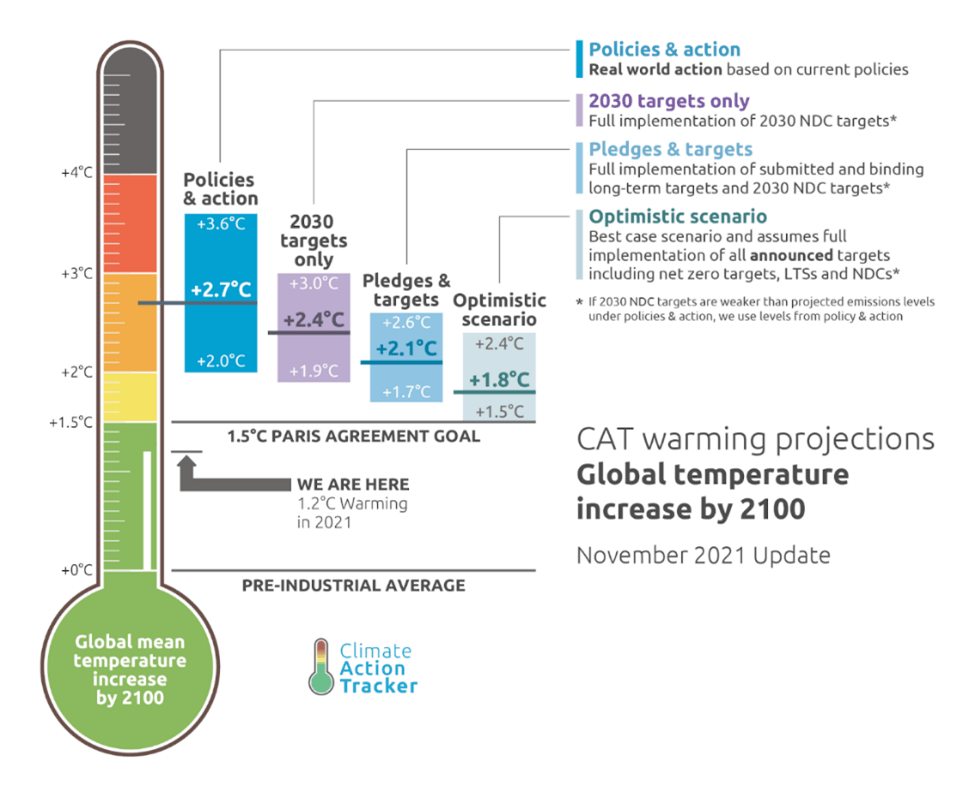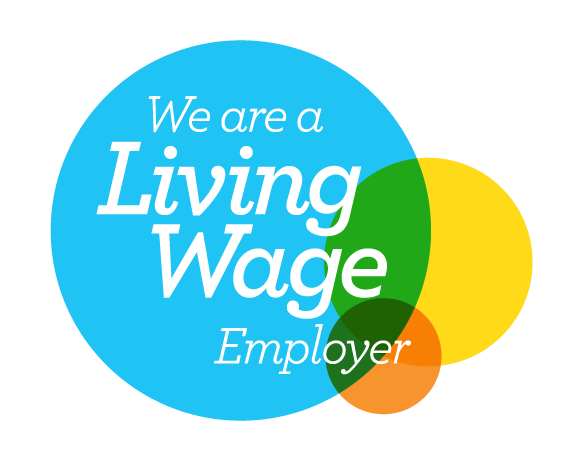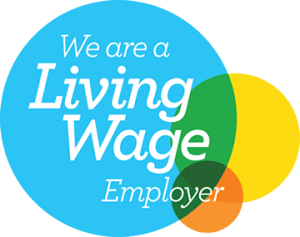COP26 - Key questions and outcomes of the climate conference
With COP26 fresh on our minds, let’s review some of the key questions and outcomes of the climate conference.
What was COP26?
COP26 was the 2021 United Nations climate change conference held in Glasgow in November. 197 states and 120 world leaders attended the conference to revisit climate pledges made under the 2015 Paris Agreement at the last major COP. COP stands for “Conference of the Parties”, and this was the 26th annual summit. At the 2015 Paris COP, 196 parties agreed upon the goal of limiting the increase of global temperatures to “well below” 2°C, preferably under 1.5°C, above pre-industrial levels. According to a 2018 report by the Intergovernmental Panel on Climate Change (IPCC), in order to keep global temperatures below a 1.5°C increase, global net anthropogenic CO2 emissions (i.e., originating from human activity) need to fall by around 45% from 2010 levels by 2030, and reach net zero emissions by 2050. If global temperatures do rise above these targets, they predict hot extremes, heavy precipitation and drought across different regions, which will dramatically impact health, food security, water supply, livelihoods, and economic growth.
What is the Glasgow Climate Pact?
The convention concluded with the formation of the Glasgow Climate Pact, which reaffirms the global temperature goals of the 2015 Paris Agreement and acknowledges the need to critically accelerate actions this decade in order to avoid catastrophic climate-related consequences. It urges developed country Parties to deliver on their climate finance promise of $100bn to developing countries, which was supposed to be met by 2020. It also underlines the importance of implementing strategies to reduce greenhouse gas (GHG) emissions, develop low-emission energy systems, and work towards the “phase-out of unabated coal power and inefficient fossil fuel subsidies”. The original text referred to an exit from fossil fuels, however India, supported by China, requested the use of “phase-out”, somewhat weakening the Pact. Parties of the Pact are expected to make climate pledges, otherwise known as Nationally Determined Contributions (NDCs), which outline their approach to reducing emissions by 2030. Current NDCs amount to a 14% increase of GHG by 2030, far from the 45% reduction target. The Parties have therefore been asked to amend and align their NDCs with the Paris Agreement temperature target by the end of 2022 and update them every five years.
What about net zero?
Net zero is an approach that provides a solution to rising global temperatures by balancing the amount of GHG emissions produced and the amount removed from the atmosphere via offsetting. More than 130 countries have pledged to reach net zero emissions by 2050, with Russia, China and Saudi Arabia aiming for 2060, and India for 2070. The UK has pledged to achieve net zero by 2050, with this target now enshrined in law and expected to be supported by UK policy over the coming years. The pledges are a big step forwards for reducing emissions, although many countries are yet to enforce net zero in law and official policies.
What does this mean for global temperatures?
Climate Action Tracker (CAT)’s temperature analysis illustrates the possible warming outcomes by 2100 based on different scenarios.
These results suggest that current policies are not enough to keep global temperatures below 2°C, and highlight the importance of implementing long-term strategies, as well as meeting the 2030 NDCs and net zero promises in order to reduce the impact of global warming. In 2021, we have now reached a 1.2°C global increase from average pre-industrial temperatures.

How does this affect UK businesses?
Your business can make a difference by reducing emissions and reporting on the action you take. In line with the UK’s net zero goals, legislation introduced in January 2021 requires UK premium listed companies to disclose climate-related financial information, with further rules set to come into force for firms (including many of the UK’s largest traded companies, banks, insurers, and private companies with over 500 employees and £500 million in turnover) from April 2022. It is the UK government’s intention to make
TCFD-aligned disclosures (Task Force on Climate-Related Financial Disclosures) mandatory across the entire economy by 2025, with a significant portion of mandatory requirements in place by 2023. Companies will be expected to report on climate risks and opportunities and how they plan to mitigate them. Support is already available from UK capital funds subsidising investment into decarbonisation initiatives. For more information on energy-related policy, legislation and regulation that could impact your sector, consult the Optimised Group’s
policy tracker.
How can the Optimised Group help?
The Optimised Group brings together a complete suite of services to manage commercial businesses' energy needs more efficiently driving down costs, reducing carbon and implementing a carbon reduction strategy. Optimised Net Zero supports your business’s journey to net zero by creating a strategy, helping you understand your emissions impact across your value chain, and defining and prioritising actions to achieve your net zero goal. We set GHG reduction targets, implement software to manage and report GHG emissions data, support GHG performance, compliance and sustainability reporting, and provide meaningful insights from data analytics to take advantage of carbon reduction opportunities. With expertise and experience spanning 20 years in the energy savings industry, we have developed this strategic service to ensure you can achieve a zero-carbon future, coupled with enhanced savings and efficiency, whilst avoiding the obstacle of capital expenditure. To find out more and start working towards net zero, visit https://www.theoptimisedgroup.com/net-zero.

ARE YOU ON YOUR JOURNEY TO NET ZERO?
We have developed a simple, 5-point net zero transition plan, to help businesses implement a credible, while cost-effective, net zero strategy.
Contact Us
BOOK YOUR 30-MINUTE ENERGY MANAGEMENT CONSULTATION
Fill in your details below to arrange a complimentary consultation with one of our experts. They will give you bespoke advice to help your business achieve all its energy needs, reducing cost, consumption and carbon.










